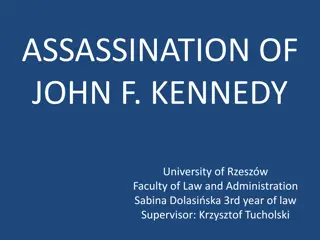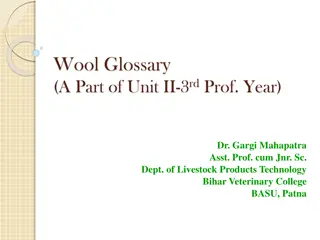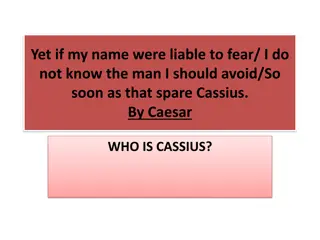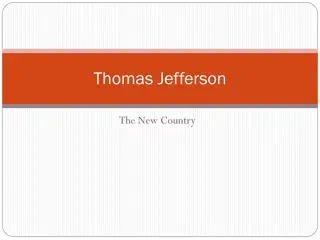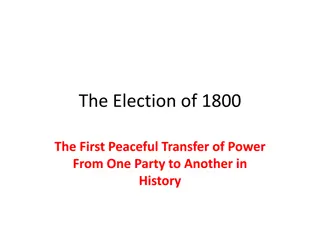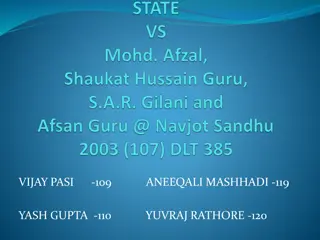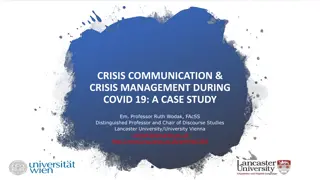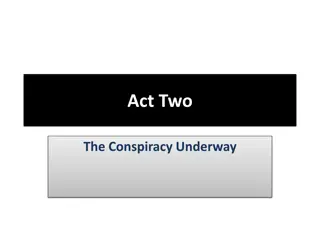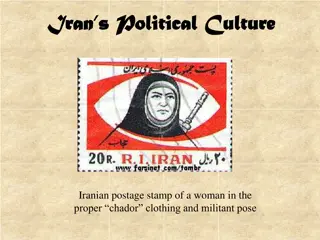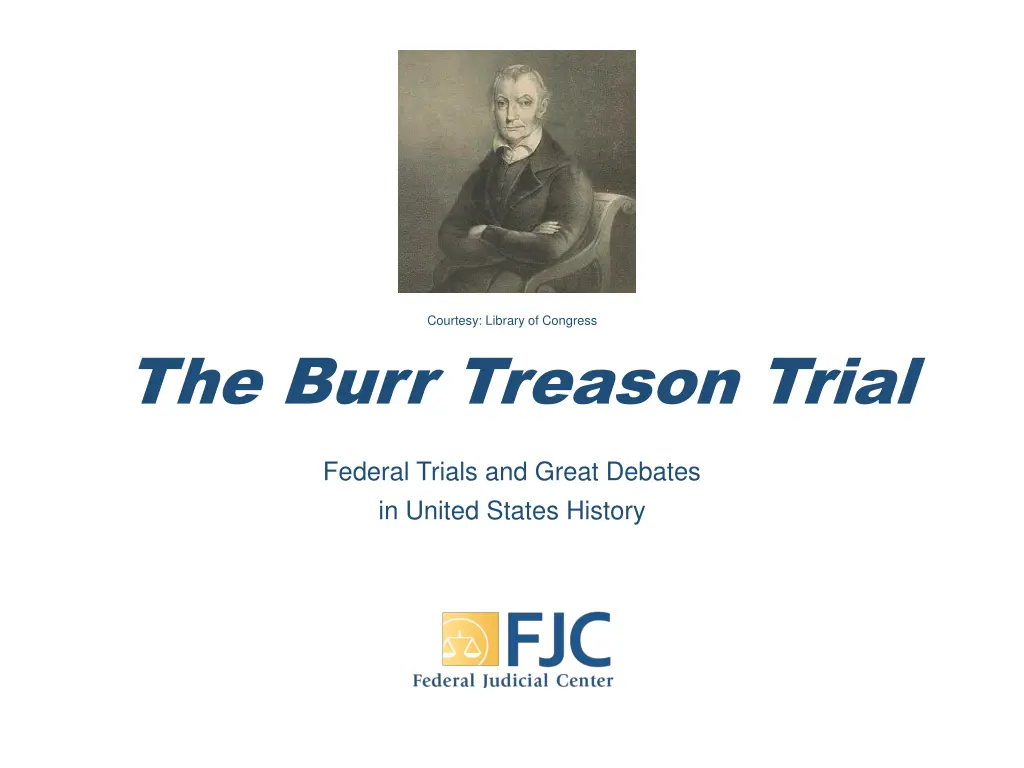
Aaron Burr: Political Rise, Duel with Hamilton, and Burr Conspiracy
Explore the intriguing life of Aaron Burr, from his wealthy upbringing to his role in the Revolutionary War, political endeavors as a U.S. Senator, the controversial 1800 election tie with Jefferson, downfall after the duel with Hamilton, and the Burr Conspiracy that led to his indictment for treason in 1807.
Download Presentation

Please find below an Image/Link to download the presentation.
The content on the website is provided AS IS for your information and personal use only. It may not be sold, licensed, or shared on other websites without obtaining consent from the author. If you encounter any issues during the download, it is possible that the publisher has removed the file from their server.
You are allowed to download the files provided on this website for personal or commercial use, subject to the condition that they are used lawfully. All files are the property of their respective owners.
The content on the website is provided AS IS for your information and personal use only. It may not be sold, licensed, or shared on other websites without obtaining consent from the author.
E N D
Presentation Transcript
Courtesy: Library of Congress The Burr Treason Trial Federal Trials and Great Debates in United States History
Aaron Burr Burr came from a wealthy and prestigious family. He was a lieutenant colonel in the colonial army during the Revolutionary War. Burr was regarded as charming and intelligent, but some thought he was amoral and too ambitious. After the war, he became a successful lawyer and politician. He served as the U.S. Senator for New York and ran as the Republican vice presidential candidate in 1796 and 1800. Aaron Burr Courtesy: Library of Congress 2
The 1800 Election The Constitution initially permitted electors to cast two votes for president. The candidate with the second most votes became vice president. The founders of the Constitution did not anticipate the problem political parties might pose to this system. Because Burr was running on the same ticket as Thomas Jefferson, the Republican electors voted for both of them, creating a tie. Burr publically claimed he did not want to be president, but did not discourage such schemes in private. The House of Representatives eventually selected Jefferson as president and the 12th Amendment changed the election system. 3
Burrs Political Downfall Jefferson did not trust Burr after the election and limited his power as V.P. The Republicans did not select him as V.P. for the 1804 election. Burr ran for Governor of New York, but lost. Alexander Hamilton, Burr s longtime rival, had published negative articles about Burr during the election. Burr challenged Hamilton to a duel and killed him. He was indicted for murder in both New York and New Jersey, but escaped trial. Burr killed Hamilton in an infamous duel Courtesy: Library of Congress 4
The Burr Conspiracy The duel all but ended Burr s political career. Burr looked to the new western territories for opportunities. Some claimed he planned to break western territories away from the U.S. and start his own country. Others claimed he wanted to start a war with Spain. Aaron Burr Courtesy: Library of Congress 5
The Burr Conspiracy Burr won financial backing from Harman Blennerhassett, a wealthy Irish immigrant in modern-day West Virginia. A group recruited by Burr began to assemble at Blennerhassett s property. Burr wrote a coded message to the governor of the Louisiana territory, saying he planned to move an army down the Mississippi River. The governor revealed the message to Jefferson, who believed it showed Burr was a traitor. Burr was indicted in federal court in Virginia in 1807. Aaron Burr Courtesy: Library of Congress 6
Chief Justice John Marshall In the 1800s, the main federal trial courts were called circuit courts. Circuit courts were made up of one district judge and one Supreme Court justice riding circuit. The justice riding circuit in Virginia was Chief Justice John Marshall. Marshall is now widely regarded as a great Chief Justice. At the time, he was a controversial figure and one of Jefferson s main adversaries. John Marshall Courtesy: Library of Congress 7
Political Pressures Marshall claimed the legal difficulties of the case were infinitely multiplied by extrinsic circumstances. The Jeffersonian Republicans viewed the judiciary as a tool of the Federalist opposition. In 1804, Republicans had impeached Supreme Court Justice Samuel Chase for his handling of politically charged trials. As V.P., Burr had presided over the trial in the Senate, which acquitted Chase. Thomas Jefferson Courtesy: Library of Congress 8
Political Pressures Before the trial, Jefferson announced that Burr s guilt is placed beyond question. Burr s lawyers attempted to make the trial look like Jefferson s political vendetta. This made it difficult for Marshall to appear neutral. Thomas Jefferson Courtesy: Library of Congress 9
The Law of Treason The Burr case was one of the first major treason cases in the United States. The Constitution lays out a very strict standard for treason. It requires: 2 witnesses . . . to an overt act . . . that shows the defendant either levied war against the U.S. or gave aid and comfort to its enemies. Luther Martin Courtesy: Library of Congress Burr s lawyers, led by Luther Martin, argued that Burr had not committed any overt act of treason. They noted he was not with the group when they gathered at Blennerhassett s property. They also argued Burr had not levied war on the U.S. 10
Marshalls Ruling and the Jury s Verdict Marshall ruled that actual force was not required for levying war. However, the prosecution had to show warlike behavior or a strong intent to start a war. Marshall also emphasized that Burr had not been present when the group assembled. He stated that simply gathering men and supplies might not constitute an overt act of treason. Although these rulings did not decide the case, they strongly suggested the jury should acquit. The jury found Burr not guilty by the evidence presented. 11
Aftermath Before the verdict, John Adams predicted that Burr s popularity would soar if he was acquitted. Instead, Burr s name became synonymous with scandal and treachery. He attempted to restart his life in Europe without success and returned to America virtually penniless. Later in life, Burr married a wealthy woman, but caused another scandal when they divorced shortly before his death in 1836. Aaron Burr Courtesy: Library of Congress 12

